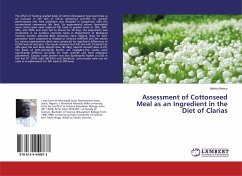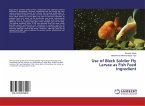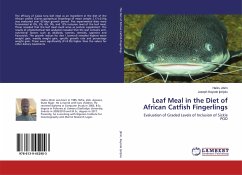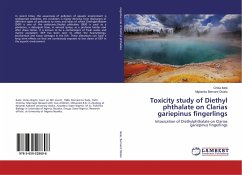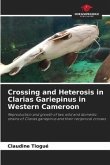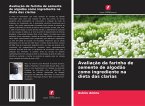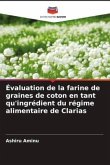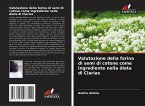The effect of feeding graded levels of cotton (Gossypium Spp) seed meal as an inclusion in the diet of Clarias gariepinus juveniles for growth performance and feed utilization was analyzed in comparison with the conventional commercial fish feed. Six experimental rations formulated were cotton-seed meal replaced fish meal at graded levels of 20%, 30%, 50%, and 100% and were fed to Clarias for 56 days, the experiment was conducted in six outdoor concrete tanks in Department of Biological Sciences Garden, Ahmadu Bello University, Zaria, Nigeria. Data for each parameter were subjected to Analysis of variance (ANOVA) and the means for various experimental diets were compared for significant differences at 0.05% level of inclusion. The results showed that fish fed with D1which has 20% gave the best Body Weight Gain (81.28g), Specific Growth Rate (2.23), The levels of Anti-nutritional Factors are negligible.The results were significantly different (p0.05) for both growth and feed utilization parameters. Carcass crude protein was also significantly higher p0.05 in fish fed D1 (20%) with (60.63%) and therefore, cotton-seed meal can be used as a replacement for fish meal at 20% level.
Bitte wählen Sie Ihr Anliegen aus.
Rechnungen
Retourenschein anfordern
Bestellstatus
Storno

